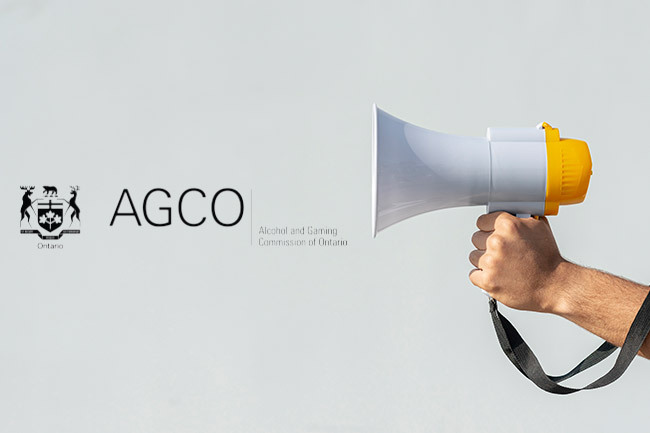In a significant development, the Alcohol and Gaming Commission of Ontario (AGCO) has updated the Registrar’s Standards for Internet Gaming to impose new restrictions on advertising in the province’s burgeoning iGaming sector. These changes, set to come into effect on February 28, 2024, are aimed at bolstering the protection of minors and addressing concerns regarding the influence of certain types of advertising.

The key change in the updated standards is the prohibition of the use of athletes, both active and retired, in iGaming marketing and advertising, except when they are promoting responsible gambling practices. Furthermore, there is a broader restriction on celebrities, social media influencers, entertainers, and other figures who might appeal to minors.
This move comes after AGCO’s consultation in April 2023, where the regulator sought input on its proposal to ban such advertising content. The feedback came from various stakeholders, including mental health and public health organizations, responsible gambling experts, and gaming operators. The consensus pointed towards the need for more stringent measures to shield the youth from potentially harmful advertising influences.
The new requirements include prohibitions on advertising themes or language intended primarily for minors, appearances of such ads near schools or youth-centric areas, and the use of certain figures or symbols that are likely to appeal to minors. This enhancement of the standards aims to address a perceived risk of harm to those under the legal gaming age.
The AGCO’s decision has been met with mixed reactions from the iGaming industry. While there is an understanding of the need to protect minors, some operators have expressed concerns about the potential confusion and challenges in implementing these changes. There are also apprehensions that the amendments might inadvertently benefit unregulated offshore operators who are not bound by these standards.
This development in Ontario’s iGaming sector is part of a broader trend towards more regulated and responsible advertising practices in the gaming industry. Similar initiatives can be observed in other jurisdictions as well, as lawmakers and regulators strive to balance the growth of the gaming sector with the need to protect vulnerable populations, particularly minors.
For instance, there has been a recent push at the federal level in Canada with Bill S-269, sponsored by Senator Marty Deacon, which aims to establish a national framework for advertising in sports betting. This legislation focuses on placing reasonable limits on advertising to protect society, especially children and youth.
Moreover, the initial advertising standards implemented by the AGCO in April 2022 already placed significant restrictions on operators, including the prohibition of public advertising to promote bonuses and requiring player consent for receiving information about deposit, signup, or bonus offers.
The evolution of these advertising standards reflects a growing awareness and responsiveness to the potential impacts of gambling advertising on public health and societal well-being. As the iGaming market continues to expand, regulators like AGCO are playing a crucial role in establishing a sustainable and responsible gaming environment.
For more information on the new advertising standards and their implications for the iGaming sector in Ontario, interested parties can visit the AGCO’s official website and newsroom. Additionally, insights into the broader trends and challenges in the iGaming industry can be found through resources like IAB Canada website and BLG’s insights on the amendments.

